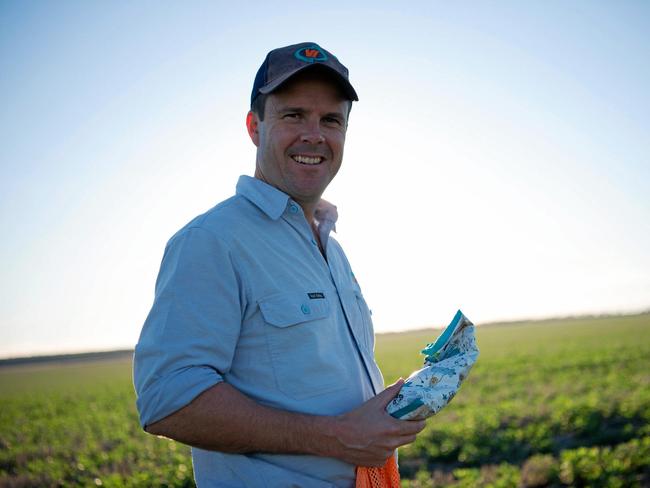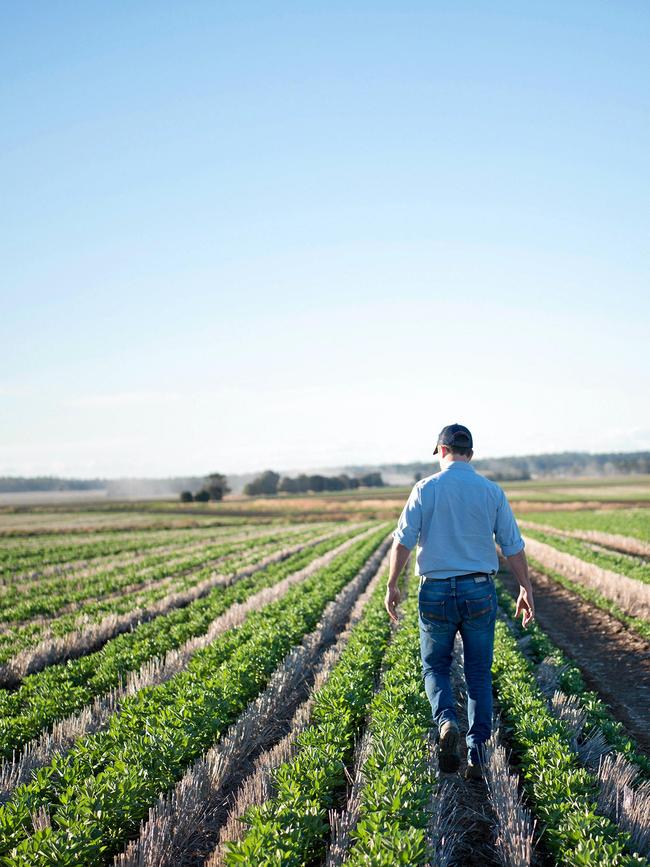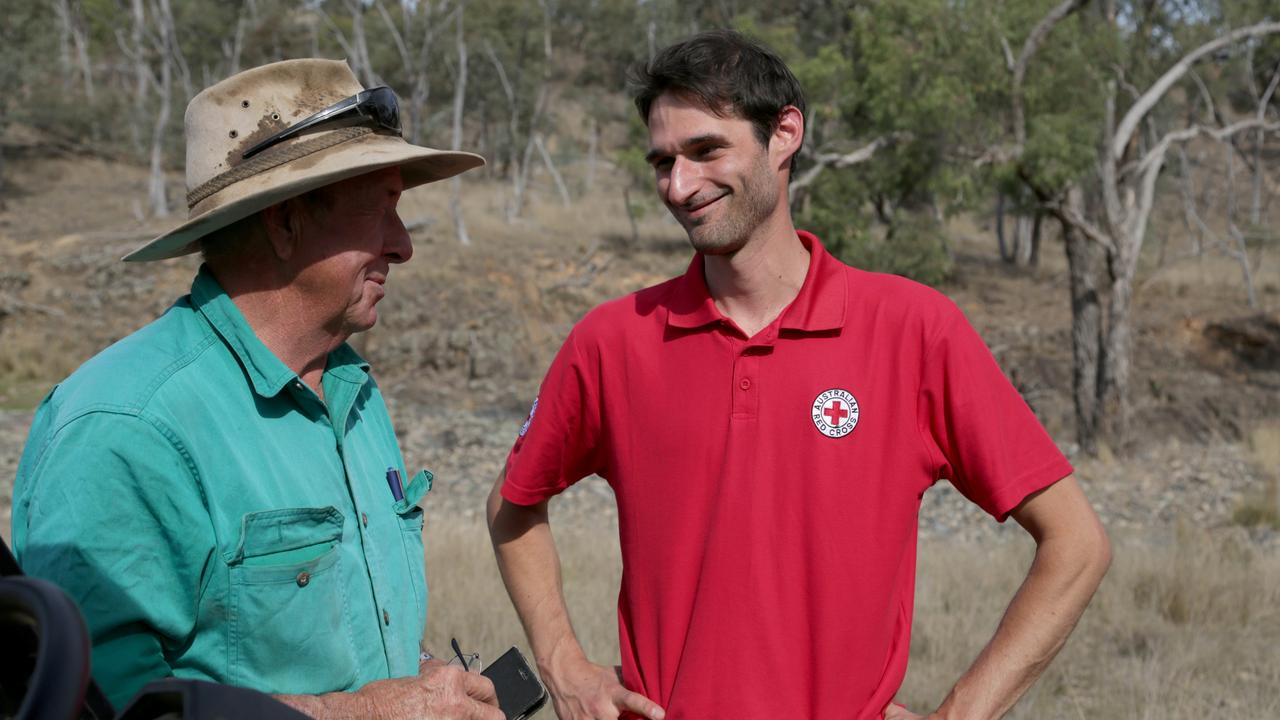Goondiwindi’s Woods family breaks into niche market
FABA beans tick a lot of boxes, according to Angus Woods, which, he tells CASSANDRA GLOVER, is why he co-founded the Human Bean Co.

FABA beans tick a lot of boxes, according to Angus Woods, which is why he co-founded the Human Bean Co.
The company grows, cooks, seasons and packages the healthy faba bean snacks in his local town of Goondiwindi.
MORE ON FARM:
FERRIER FAMILY INVEST IN BEST PRACTICE FOR BIRCHIP CROPPING FARM
NETHERLANDS MICRO-GREEN BUSINESS KOPPERT CRES LEAD THE WAY IN
Human Bean Co is part of Woods Foods and is owned by the Woods family.
They produce about 1000 tonnes of faba beans a year, as well as other grain crops including chickpeas and wheat, on their 14,000- hectare property, Billa Billa.
“We’ve been farming here since the 1950s. My grandparents started farming here. My parents are still here,” Angus said.
“Woods Foods was started in 2012 and Human Bean was started at the end of 2017.
“Woods Foods is part of the Woods Group of businesses.”

The businesses are run by Tom Woods senior and Bronwyn Woods and their four sons, Angus, Andrew, Bruce and Tom.
The family have been growing faba beans on and off for the past 10 years, but they have recently become a more permanent fixture.
“Growing them has become more important because we need consistent supply of a consistent quality,” Angus said.
“Obviously we have started to process a lot more faba beans on a daily basis.
“And people see Human Bean out in the market and there’s the flow-on effect from that. We supply other companies with faba beans too.
“Human Bean has seen some fun and excitement with the beans.”
Angus said they would start harvesting in October.
“We plant in about April. First to plant and first to harvest of the winter crops,” he said.
“We look after it from paddock to plate.
“They’re harvested conventionally the same way we harvest a chickpea or wheat crop. A crop like faba beans would just take a few days to harvest.
“Once they’re ripe you want to harvest pretty quickly because they can shatter and end up on the ground.”
The Woods family grows dry land faba beans. Angus said the season had been terrible.
“Luckily we will get a crop,” he said.
“It won’t be fantastic but we’ll have supply for next year and feed for next year.
“But our yield potential has been cut back considerably.”
Angus said faba beans had not been popular until recently.
“They haven’t been really well known. They’re extremely high protein, a source of fibre, they’re low fat, they’re allergen free,” he said.
“They’re non-GMO. They tick a lot of boxes in terms of health, trends and wellbeing. A high protein diet helps fill you up.
“Plant-based protein is good for the emerging vegan-vegetarian diet. Beans tick a lot of boxes.”
Angus said he loved eating faba beans.
“They’re a tasty snack to have midmorning to get me through to lunch.”
Angus recently returned from Hong Kong, where he attended the Natural and Organic Expo at which Human Bean won Best New Natural Healthy Snack.
“I wasn’t expecting it but it was a nice surprise.
“And from that we had an enormous amount of inquiries,” he said.
“It’ll be available in Hong Kong later this year.
“It’s in Malaysia and on trial in the US. We just got our second order that’s gone over there.
“We want to get Australia nailed down first. We couldn’t do these other things if we don’t have a solid market at home.”
The Woods family employs sustainable farming practices as part of the operation.
“Dad was one of the first to adopt zero-till farming. He was a pioneer, you could say,” Angus said.
“Beans fix their own nitrogen. They’re fantastic for rotation on farm.
“Pulses have been brought about in this region to break disease and chemical practices.
“And we’re seeing pulses develop into popular food.
“So it’s a good time to be involved with these types of products.”


